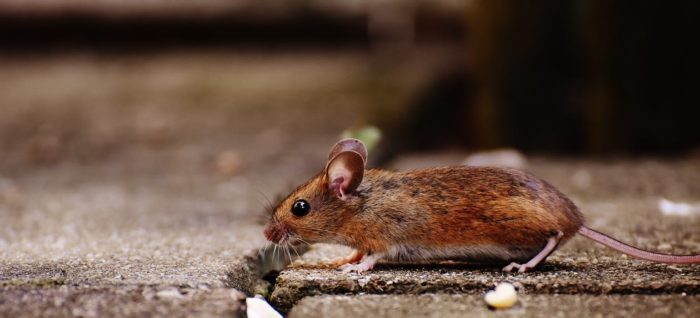Are rats causing havoc in your house? Are they destroying your house by chewing through all the materials? How to stop them from biting these materials and getting into your house? What are the materials which rats can or can’t chew?
Are you feeling irritated at the sight of gnawed-on aluminium wires and furniture made of wood or plastic? Don’t worry!
There are certain materials these rodents can and can’t chew through.
Important Note: If you're tired of pests and want a reliable solution, then you should definitely consider seeking help from a professional pest control company. DIY solutions can be effective, but if you're dealing with a significant pest infestation, you don't want to rely solely on DIY methods. Pest control companies typically don't charge huge fees. You can fill out this form to receive free quotes from the top local pest control companies, and compare the quotes and see for yourself. Then, finally, your pest problems will be eliminated for good.
Knowing this can help you know which materials you should use to prevent damage by these biting rats.

What is Gnawing? Why do Rats do it?
Gnawing is a natural rodent behavior that keeps their teeth healthy. In their natural habitat, rats chew on twigs and barks, while in our homes, they have to chew on building materials like brick walls.
Rats have very strong teeth and have the most powerful bite among all other rodents. Rats can chew through a surprisingly huge number of materials, which you can see in the article later.
The anatomy of a rat’s teeth explains why they are great at nibbling. What’s it?
Studies into the bones and muscles that make up the rat’s jaw have found that rats have muscles that are specially adapted for highly effective gnawing and chewing.
Another interesting fact about a rat’s teeth is that their incisors never stop growing!
Rats must continuously chew through a variety of different materials to wear their teeth down. Otherwise, their teeth would grow too long, making it impossible for them to eat or close their mouths, which would ultimately kill them. Amazing, right?
No wonder these pesky little creatures keep on gnawing and chewing on materials! This is what makes it frustrating for homeowners who fail to keep these creatures from damaging their homes.
Materials Rats Can Chew Through
The sharp bite of rats can bring any mighty building material like bricks to tatter. Almost everything is made of plastic these days… Can rats cehw through Plastic?
These are some materials that rats love to chew through:
- Wood
- Cement
- Plastic
- Brick walls
- Aluminum
- Wires
- Lead
- Cinder Blocks
- Asbestos
Materials Rats Can’t Chew Through
Here’s some good news! Fortunately, rats cannot chew through some materials. At this, they haven’t beat us yet. So go ahead and grab these for a complete rat-proof home:
- Solid Concrete
- Copper Mesh
- Stone
- Hard metals
Now let me tell you how to use these materials which rats can’t chew. This will make your house Rat-Free.
Rat Resistant Materials Usage –
1. Rat Proof Floors
Using weaker concrete materials like cinder blocks for the floor of your house can make it easy for rats to chew through. Using solid concrete for the flooring is a wise decision since even the strong teeth of rats cannot get their way through it.
Even more, so if your house has a solid concrete foundation, then it’s very unlikely that rats will be able to get in through the floor. That’s great news, right?
Another option is to install stone flooring. Stone flooring and ceramic tile are great materials for flooring options. But not all ceramic tiles are equally strong. Some tiles might be weak enough for rats to chew through. So you have to be careful when choosing the right one.
Another option is to install stone flooring. This also can stop rats in there, as can some types of metal tiling.
2. Block Holes And Gaps With Rat Proof Materials
Now, this is very important. Whatever rat-proof material you use, if there are holes or cracks in the walls, roof, or floors of your house, then rats can easily get through into your house.
Common entry points include the openings around pipes, electric wires, vents, and drain spouts, and the cracks and gaps around windows, doors, and screens. Make a thorough inspection of your house and seal all the possible entry points with rat-proof materials.
Hard metals like steel and iron are impossible for rats to chew through. That’s why it’s recommended to use wire mesh and steel wool to seal gaps, and then they are filled with caulking. A mixture of steel or copper wool and caulk is best for sealing holes, as the combined strength of these two materials makes it very difficult for rodents to gnaw through.

Bonus Tips To Keep Rats Away
Keep Your Surroundings Clean
Rats love dirty, cluttered places, so they look for places with piled-up things like the attic or loft.
- Clean your house regularly to deny them their space and prevent the nesting of rats in your house.
- Make sure to use sealed garbage cans to store waste.
- Don’t leave food leftovers on countertops.
- Clean up all spills, crumbs, and cooking utensils immediately, and don’t neglect the spaces behind appliances and in attics & walls.
Seek Pest Control As Soon As Possible
A rat infestation can cause many problems like diseases and infection. You must know when to call a professional exterminator.
It’s better to seek professional help if you feel the rat trouble is getting bigger. An experienced professional might be able to assist you well.
If you want to seek help from professionals, fill the form below. This will help you in getting FREE quotes from major Reliable Local Exterminator Companies.
Conclusion
So having read this article, you might now know which materials rats can and cannot chew through.
So make use of the rat-proof materials to prevent rats from entering your homes.
Get rid of rats by following these simple tricks to having a safe environment for yourself and your family!
I hope this article has given you solutions to rat problems.

